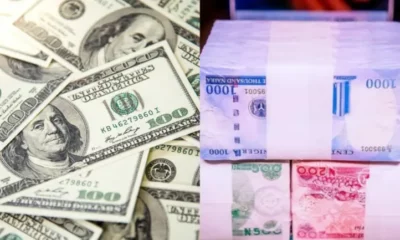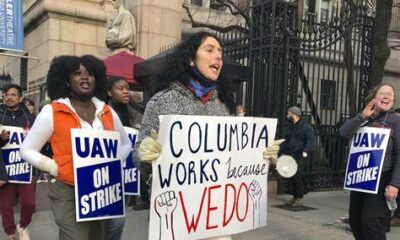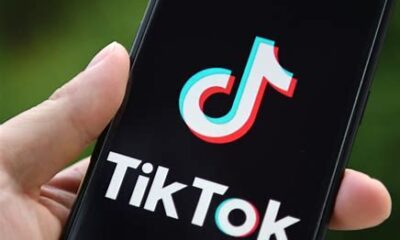News
Fuel Price Soars By 81% Despite N6tn Subsidy Payment – NBS
The price of Premium Motor Spirit popularly called petrol has risen by 81 per cent in the past three years, according to the National Bureau of Statistics reports analysed by our correspondent.
This came as findings showed that the Federal Government has paid about N5.83tn subsidy on petroleum products.
NBS data showed that between February 2020 and February 2023, the price of fuel rose from N145.41/litre to N263.76/litre.
The NBS report stated that the average retail price paid by consumers for Premium Motor Spirit in February 2023 was N263.76, indicating a 54.76 per cent increase when compared to the value recorded in February 2022 (N170.42).
Likewise, comparing the average price with the previous month (January 2023), the average retail price increased by 2.58 per cent from N257.12.
At the onset of 2020, the average price paid by consumers for petrol increased by 0.08 per cent year-on-year and month-on-month by 0.03 per cent to N145.41 in February 2020 from N145.37 in January 2020, according to the NBS.
At the time, the Federal Government had paid about N134bn as fuel subsidy payment.
States with the highest average price of petrol were Abia (N146.87), Adamawa (N146.67) and Niger (N146.57). States with the lowest average price of premium motor spirit were Abuja (N143.67), Enugu (N144.50) and Lagos (N144.73) in 2020
In the last three years, fuel subsidy has gone from N134bn in 2020 to N1.43tn in 2021, N4.39tn in 2022 and a projected N3.63tn by June of 2023. This led to a total of N5.83tn in subsidy payments, excluding the figures for 2023.
The Federal Government has continued to restate plans to remove fuel subsidy with a plan to deregulate the oil market by June this year.
The Minister of Finance, Budget and National Planning, Mrs Zainab Ahmed, said last week Nigeria had borrowed $800m from World Bank for the purpose of palliatives for Nigerians ahead fuel subsidy rmeival.
A September 2022 report by the Nigeria Extractive Industries Initiative disclosed Nigeria had spent N13.7tn ($74.386bn) on fuel subsidies between 2005 and 2022.
However, there are fears that the removal of fuel subsidy might be drastic for the populace as the countdown to the June 2023 date for subsidy removal inches closer.


 Sports13 hours ago
Sports13 hours agoNBA playoffs: Timberwolves cruise past Suns for 2-0 lead despite off night from Anthony Edwards, Karl-Anthony Towns

 Top Stories13 hours ago
Top Stories13 hours agoYahaya Bello: Do Not Allow Yourself Become A Tool Of Political Vendetta And Intimidation – Kogi Assembly To EFCC

 Entertainment12 hours ago
Entertainment12 hours agoBREAKING: Popular Veteran Nollywood Actor is Dead [Video]

 News12 hours ago
News12 hours agoBlack Market Dollar (USD) To Naira (NGN) Exchange Rate Today 24th April 2024

 News14 hours ago
News14 hours agoFG Summons Lead British School Management Over Bullying

 Top Stories8 hours ago
Top Stories8 hours agoColumbia University extends negotiations with student activists over dismantling encampment

 World13 hours ago
World13 hours agoUS Congress passes TikTok sell-or-ban bill, but legal battles loom

 Sports13 hours ago
Sports13 hours agoEPL: Why Chelsea lost 5-0 to Arsenal – Pochettino






